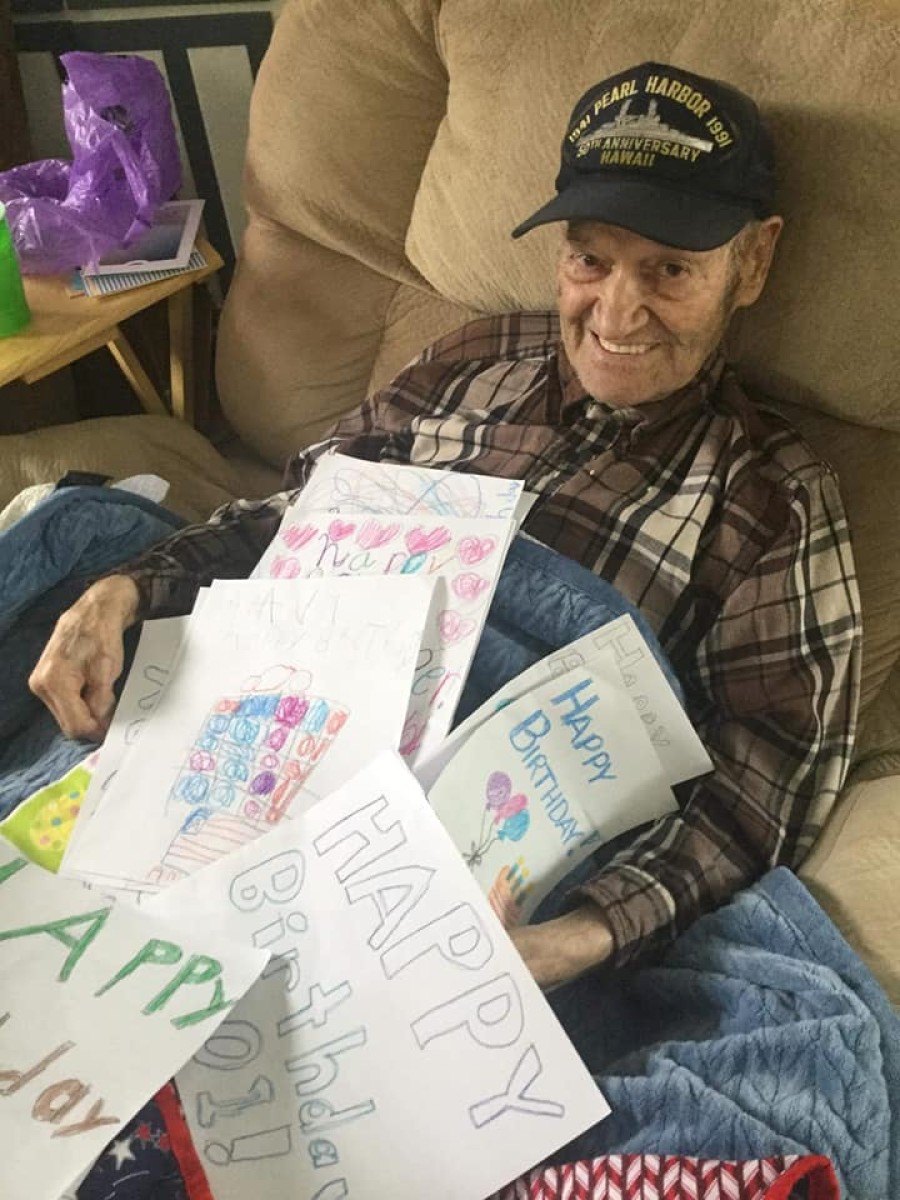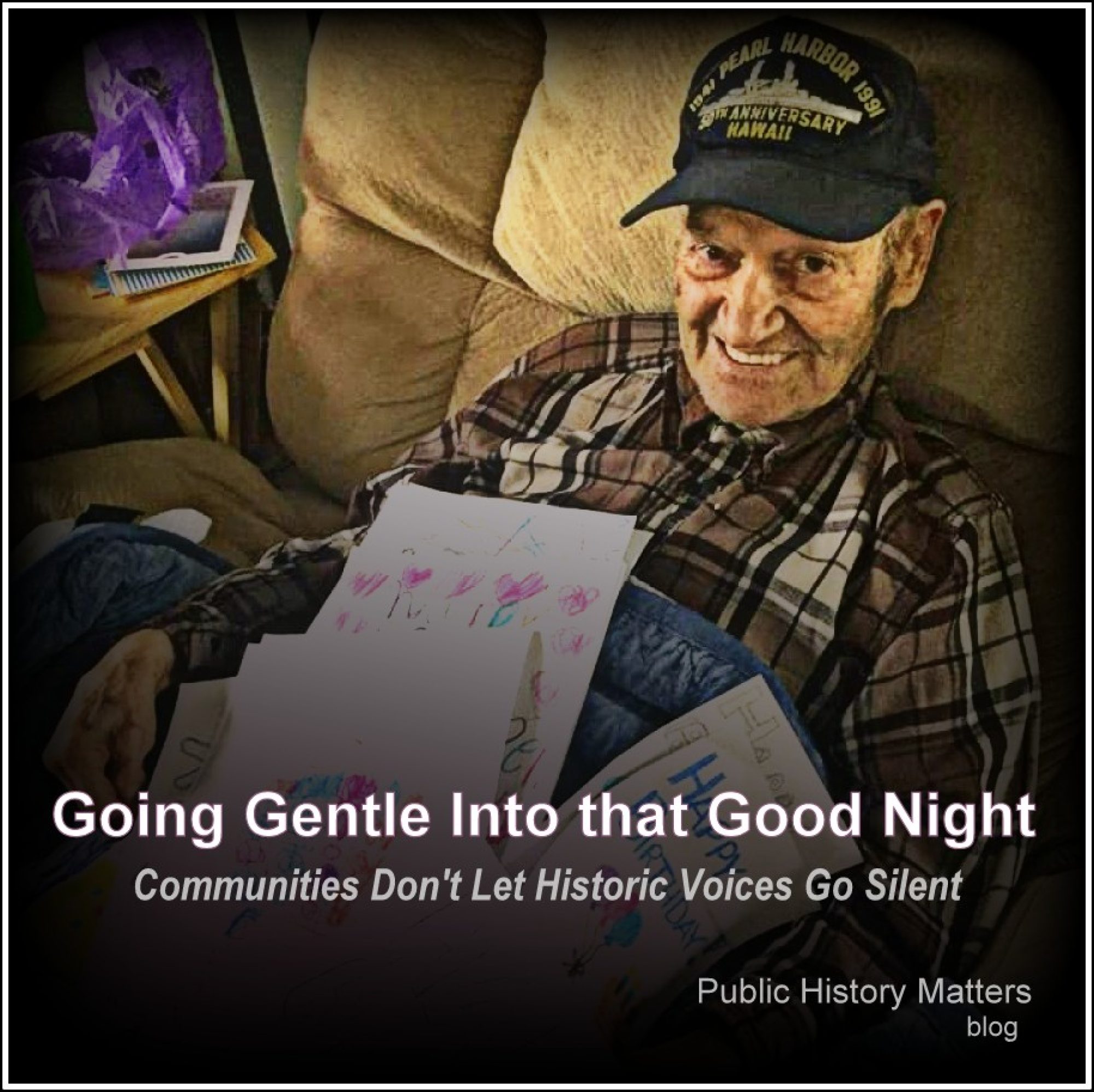Gallery with alias: PUBLIC_HISTORY_BLOG_POSTS not found
Our voice resonates with life. ~Daisaku Ikeda, buddhist philosopher
We recently heard the news through a local news source that Joseph Gasper passed away on December 20, 2020. He was one of our nation’s last US military survivors of the attack on Pearl Harbor. Joe was most certainly the last survivor from the greater Pittsburgh region. Joe was 102.

It’s been 79 years since the historic December 7th attack on Pearl Harbor. But just two years ago, Joe’s hometown officially declared that date to be forever known as “Joe Gasper Day” in Ellwood City, Pennsylvania.
The town’s mayor declared, “It is a privilege to honor, Joseph Gasper, a Pearl Harbor survivor who served our country with honor and dignity. Thank you, Mr. Gasper, we are truly blessed to know you!”
When he received the honor, Joe was 100.
We are pleased that Joe’s community eventually–formally and collectively–recognized his service. But after a decade of oral history work recording the stories of hundreds of veterans from WWII to Afghanistan (including that of another Pittsburgh area Pearl Harbor survivor, Alex Dyga), we know that far too little effort is given by communities to capture, preserve, and share the life stories of fellow citizens like Joe Gasper.
For years Joe Gasper’s story went un-recognized by his community, as do so many other remarkable life stories of our senior citizens. There is a wealth of history to be revealed in the golden years of our senior citizens–but only if we seek out the stories they very often are eager to share with younger generations.
But how do we connect with such stories? The answer is quite simple: we ask and we listen. And we record.
LOCAL HISTORIANS MUST DO ORAL HISTORY
We’ve long advocated that local history museums and historical societies (seems like every small town has one) are uniquely positioned to be oral history centers in their communities. Often run by trained public historians (professional or amateur) deeply interested and knowledgeable about their communities, local history centers are well suited to capture, preserve, and share the life stories (oral histories) within their own communities.
And local historians who partner with media and community-focused storytelling efforts such as The Social Voice Project can amplify their capabilities. Oral history work is skilled work, and in our experience-based opinion far too precious to be managed by unskilled amateurs.
Voices From the Community
The News Is History
OUR POSITION – HERE’S WHAT CAN BE DONE
At The Social Voice Project, we strongly encourage public historians, local museums, and historical societies to engage history through the use of oral history. Here’s what can be done:
Local museums should add an oral history component to their programming.
Designate an oral historian for the organization.
Create a goal to record at least one oral history interview each month.
Contact The Social Voice Project for oral history training and technical assistance.
PUBLIC HISTORY MATTERS
At The Social Voice Project, we celebrate history and people through our community oral history projects that give us a chance to look, listen, and record the voices and stories of our time. We encourage all local historical societies and museums to capture, preserve, and share their communities’ lived experiences, memories, customs, and values. Future generations are depending on it.
Contact TSVP to learn more about our commitment to public history and technical assistance in creating community oral history projects.

You must be logged in to post a comment.